In the past ten years or so, in my life outside Academia, I have delved into a course of independent study: a search for a more heart- and spirit-centered way of thinking than the one that predominates within the walls of the Ivy Tower, or in the modern western world. (Like many before me, I was propelled to this when “things fell apart” in my life and I faced some Life Challenges head on.) I have traversed a terrain of readings by spiritual leaders from diverse traditions, including varieties of Buddhism, Taoism, Sufism, Sikhism, Toltec wisdom, and Christian mysticism; translations of Eastern thought for Western audiences (e.g. by Jack Kornfield and Pema Chodrön); the work of spiritual psychologists like Tara Brach (www.tarabrach.com); Jungian psychologists (e.g. Karl Jung, Marion Woodman); more edgy/New Agey social science (e.g. Ken Wilber, Michael Singer); and New Atheistic thinking about the nature of consciousness (Sam Harris).
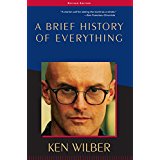
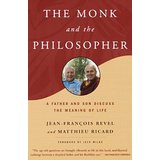
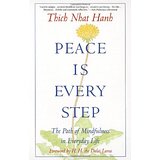
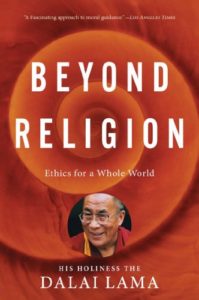

![]()
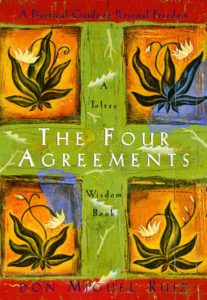
Along with reading, I have tried a variety of practices: various forms of yoga and meditation, along with other embodied ways of getting out of my own head: swimming, hiking, running, and being in  nature.
nature.
Admittedly, in all of this I have only skimmed the surface of traditions that could take a lifetime of study and practice to fully understand. I have not been in search of a singular “answer” or pathway to Enlightenment as much as an understanding of the many ways that humans throughout history have probed the mysteries of the universe and dealt with the challenges of life.
Indeed, I have found a common core to these diverse philosophies – one that stands in rather stark contrast with the dominant values of academia and the modern western world. The practices and philosophies all strive to get people beyond ego-centric, left-brained, rational/logical/analytical world views and to tap into something that goes under or over or beyond words.
This intuitive, organic, holistic, heart-centered, ego-transcendent orientation to the world has been an important guide for the ways I try to live my life and do my work today. From this immersion in a set of ideas that live outside of my academic world, the mindset that I had when I entered Academia with Ph.D. in hand in 1995 has been considerably shifted. Hopefully, my actions have followed suit.
And yet, for the most part I have kept this thinking separate from my public academic work. This self-surveillance is propelled by the wariness that reins within the Academy about anything that might be even remotely “unscientific,” religious, mystical or dogmatic. Things that cannot easily be dissected, tabulated, labeled, categorized and typecast are quite suspect in the Kingdom of the Left Brain. The Cartesian divide of mind and spirit is alive and well, and we police ourselves into maintaining it.
Ironically, perhaps, I have done some of the heaviest self-policing when I direct my work to activist-oriented scholars. I expect “push back” if I speak about such “soft” matters as love, kindness, compassion and acceptance, or call for using the word “transformative” rather than “critical.” I am aware that many may see this as too soft a way of responding to power. Injustices must be named head on, confronted, taken to task, pushed back upon.
Fo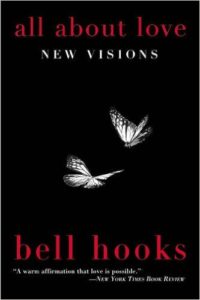 r sure, there are exceptional scholars who traverse the divide between heart and mind, and between criticality and love, with grace and power. Paolo Freire, bell hooks, Gloria Anzaldúa, Sofía Villenas are just a few who come to mind. These heart-centered scholars inspire and embolden me.
r sure, there are exceptional scholars who traverse the divide between heart and mind, and between criticality and love, with grace and power. Paolo Freire, bell hooks, Gloria Anzaldúa, Sofía Villenas are just a few who come to mind. These heart-centered scholars inspire and embolden me.
In recent years, I have taken on the topics of kindness, compassion, and forgiveness in public blogs (e.g. http://www.huffingtonpost.com/marjorie-faulstich-orellana/on-gratitute-genocide-rec_b_4400474.html), in ways that I think also take seriously the importance of recognizing injustice and oppression in the world. My recent book (Immigrant Children in Transcultural Spaces: Language, Learning and Love) calls for researchers to “see with our hearts” and for teachers to embrace a “pedagogy of heart and mind.” In the book I mention Thich Naht Hahn and talk about the “animus.” But I skirt widely around the word “spirituality,” and make no real mention of the many other influences on my thinking or on my life – perspectives that are rarely heard in academia. My silence makes me complicit in shoring up the Cartesian divide.
But I’m feeling bolder now. Perhaps because there is more opening for such thinking: a growing recognition of the limitations of rational empiricism, as well as the limits of criticality. Perhaps, too, I feel a little clearer about how seemingly contradictory perspectives on the world can and do come together, how they can work in productive tension to point to new possibilities. I am more and more convinced that what the world really needs is a fundamental transformation in the ways we think about everything – not just critical analyses that simply topple or invert power, but then re-create it in some new form.
So I’d like to use some of these blog columns to work out and try on my thinking about these matters. (This will include thinking about not-thinking: understanding the limits of the analytical mind.)
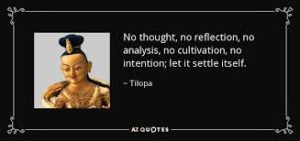
I’ll continue to reflect on our ongoing practice at B-Club, and highlight the academic theories that inform that work. But I’ll try to make more visible these other influences on my practice, and the ways that I am seeking to integrate them into my voice as both a scholar and a social justice advocate.
I will also grapple directly with paradoxes and tensions between a “critical” stance (i.e. focused on naming and changing power relations in the world) and a “spiritual” one (i.e. focused on compassion, love and acceptance). Some may see these as irreconcilable, but I think such tension offers the most productive space for propelling the world into new possibilities. Specifically, I will explore the paradoxes of:
(1) accepting what is, as it is, and changing the world
(2) being in the Now, and preparing for the future
(3) naming inequities and injustices, and assuming a stance of profound gratitude for what we have, and
(4) naming and claiming social positionality, and questioning all forms of ego-identification.
These are not easy paradoxes to unpack, and I will be working out some of my thinking as I go. But thinking is much more powerful when it is done in dialogue with others. (And then after thinking together, we can let it settle itself.)
So once again I will put out a plea to readers. Do you see the comment box below? I hope you will embolden yourself to write something there. Give me some “push back,” if you will. Some words of inspiration, if you feel inspired. Did something resonate for you? Give you pause? Something you want to think more about, or offer readers a different way of viewing? Something you want to let settle, and see where it lands?
So inspiring Marjorie. I still remember that I almost shuddered after I read your book “translating childhood” years ago, realizing that oh, an academic book can be this nurturing, communicating, and respectful of those who are researched – and thought, I might want to go for an academic track in my life (and I made my transition from teaching and learning to Ed Psy where Lisa Dorner became my advisor, a connection made absolutely through your inspiring book…
But here is my other story … It was 20 years ago in my mid-20s when I first got to read the “Turning point” by Frijof Capra who vehemently critiqued the Cartesian divide which permeates all of the Western thoughts, ways of living and operating the world. At that time, I was very sick and had to take a break from my loving graduate work. During several years away from English language and literature program, which previously had been literally soaking me in a culture and language of distant time, countries, and ideas, I realized for the first time how rich my own culture and language was, Eastern philosophy and medicine were.. Then, instead of trying so hard to make meaningful connections between the far-fetched worlds, between foreign literature and my own context who was living in a turmoil of Korean society in 1990s (although i loved reading Melville, Spencer, Shakespeare, and Milton), I swerved my path… did meditation, participated in different spiritual practices, read many books related to self-enlightenment, cosmic one-ness and love, studied Eastern Medicine.. My world became full of language that was so different from what I had previously been familiar with in the English department – rhetorically, practically, and spiritually. This eye-opening learning continued almost for a decade until the time that I had two of my own children (I even gave birth to one of them as a purely unassisted natural home birth.. all affected by my practice at that time – through deep meditation, alternative medicinal practices, and years of Chi-kong exercise)…. .
Maybe my practice was not sufficient enough, however… What I found when I came back to the Academia, still as a student (even entering a different major – now Education, and as an international minority in the U.S. academy), my newly acquired language of nature, meditation, love all away from the Cartesian divide towards a different plane of understanding world, didn’t work in academia or in the ‘secular’ world if I say more accurately. The language I cherished (and still do) was a privilege reserved for those you have an established position in that world (so they have this freedom of saying things in an unorthodox way). We, apprentices in education, still have to follow all the footprint of the Cartesian way of communicating (and thinking) in academia ( we are even viewed naive if we use the word, love…. in an academic paper).
In a world where the neoliberal values predominate, language of logos prevails, hierarchy of social positions and salary range discriminates people, especially where the most deprived has the least access to the critical power of language and even adversely endorse people in power.. I sometimes feel so very frustrated with my lack of position and power to say in the language I value so much (literally nobody hears me who does not have a voice that is yearned after).
From all those very precious experiences from my 20s and 30s – my turning point – immersed in the Buddhist, Taoist, ideas from Quantum Physics, and more, I have drifted away for the next full decade…. just to finish my degree in abroad, to survive and to support my kids (but I have to admit, apart from my academic persona and language use, that other language and practice kept me motivated, moving forward, and still be hopeful).
Yes, here is my dilemma. Critical approach, whether towards critiquing and disrupting the status quo power structure or towards empowering the positive momentum of human nature — can it really be the means, language, and daily discourse and practice for those who do not have the day-to-day, month-to-month salary? For those who are not allowed to talk in the language (whether critical and/or empowering?) For those who know that they are compromising their ideals but have to silence and say other things, just to get a job and to feed their family ( I know many of them… who later do not remember they were different people)?
Marjorie, please know that I write this both because I am so inspired by your writing and also because of my own recent deepening frustration about how the world works, (and perhaps more because of my personal adversity of trying to find an academic job as an international without any established language – and achievement – of academy that are sought for here) which is so different from the language I want to use, the language you are now bravely using.
But I know… almost instinctively — what you aim to share and promote is what I want to do…. no dichotomy in seemingly different critical perspectives. and that’s why we need to use a different language (which I doubt however will take place any time soon). Please help me be more positive…
Love you… always inspired by you.
Thanks,
Sujin
Dear Sujin: I have read and re-read your beautiful, heart-felt, thought-provoking (so interesting that we “provoke” thoughts) message now, and will need to re-read it again later before I put some words into a response of some kind. Both my heart and my mind thanks you for engaging so deeply with my words and for sharing your own and your own experiences and struggles. I will write more later, but thank you again, for the gift of your words.
-Marjorie
I thank YOU, Marjorie for your inspiring work all the time. Since I wrote my response in such an inspirational flow of moment, it’s here and there, all over.. But I appreciate this special moment of connecting with you (and also my own deeper side). Although I wrote I am struggling, somehow you planted seeds of hope in me to re-connect and re-member… THANKS. –Sujin
Thank you so much, Marjorie.
My response here feels clumsy and I am embarrassed of it as I post it but I think this feeling is also tied in somehow to the undervaluing of heart in a worldview that sees this as opposite of mind.
Your words here have helped to congeal some thoughts and feelings that have been percolating. I apologize that they feel a bit too raw and unformed to share just now. Suffice to say you’ve helped me reflect on how the ways I’ve been asked to mentor, serve, and care (doing heart work) have been called weakness or deemed unqualified as intellectual efforts .
As Sujin Kim so beautifully stated in her response, immersion in a context that values only one side of our beings can silence the parts less valued. A loved one recently reflected to me the dreams I had in grad school of powerful learning that could empower, liberate, unite. Instead I find myself accustomed to ego contests at the expense of student wellbeing, learning, and academic accomplishments. Where people brag about intellectual accomplishments but miss sleep and their families. I look back on that grad student I was and call her naive while mourning her loss.
Still, all I write here seem like the woes of the privileged. I may have lost the dream that got me here, but I have a tenured position. I may be exhausted from pushing back on institutions that don’t seem to value or nurture my students (or myself) as full beings but I have a voice with which to do this.
Dear Amy: Thank you for this honest and moving response. As with Sujin’s comment, I want to think more about your words, and find time for a more proper response. Right now I have the press of academic things upon me: letters of recommendation, a tenure letter, an overdue report, meetings with students, a faculty meeting. Deadlines that can’t wait and the constant press of things that must be done. But as you point out, this is still a life of tremendous privilege, including the privilege to muse about these matters.
I’m struck by your hesitance to post a comment, and I suspect that is shared by many, because I have called repeatedly for people to write comments and only a few have stepped up here (though they have responded in other ways). I know there’s something about putting one’s words out in this form, about matters of the heart, that makes us, as academics, particularly vulnerable. That’s one of the binaries that bind us: tough/soft, heart/mind…and of course we ARE vulnerable in certain ways. Our words CAN be used against us. We CAN be dismissed as too naive or soft or not able to play hard ball in the Big League of the boys. But we also police ourselves into believing those things, silence ourselves, remain complicit. I know I’ve done that for a long time. People have told me that I was “brave” to put love in the title of my book, and to write about these things I’m writing now on this blog. I don’t really feel all that brave, but I do feel compelled, driven, fired up, animated. (Animus as that sense of spirit from within, driving us…)
It’s the BINARIES that I am questioning. I’m not rejecting the life of the mind, or the value of words/analysis/left brain thinking to do certain kinds of work in the world. I also see the importance of looking “critically” (in the sense of analyzing and naming power relations, injustices, inequities) at the world. I just don’t want to set those ways in opposition to other ways of knowing, feeling, intuiting, understanding…and other ways of moving into NEW understandings. Mind AND heart, working together.Using each to their full advantage. And not getting too caught up in believing everything we think…Sometimes just holding it at a distance, saying, “Isn’t that an interesting thought?” and “Aren’t our thoughts so interesting?” and feeling our way into other understandings. An approach that is not easily reduced to words, because words are the tools of the Kingdom of the Left Brain…
But those letters and reports are waiting and this comment isn’t as well thought out as I would like (but it comes from the heart :)… I’ll return to these musings later when my mind is more centered.
All best,
Marjorie
The binary is definitely the Cartesian heritage. But more than anything its theoretical implication has influenced the modern education. It is there in all of our classes when we sit down our students fixed in their chairs to listen for hours to abstract knowledge. The idea is that knowledge and learning happens in the MIND and not the BODY.
The word ‘education’ comes from the Greek root ‘educare’ which means bringing out [something that is already inside] and in principle education was always associated with whole body experience. In ancient traditions kids were educated on most level of existence. The eduction was not only meant for logos (logic) but also pathos (emotions), ethos (ethics), eros (desires), and mythos (collective subconscious mind).
But separating mind from the body also shows up in other aspects of our modern education where students must LEARN and teachers must be TRAINED. From what other source does our education get its philosophy other than psychology where behaviors are either processes of the mind alone (cognitivism), or gradual conditioning of the bodies (behaviorism)? What a convenient separation of LEARNING and TRAINING! In other words, in the eyes of educational philosophy, while students may still resemble something human-like by using their brains, we, teachers, are closer to dogs that has to be trained with lots of REPETITIVE workshops.
And the heart? What a forbidden word in academia! This, I leave it for another occasion of outburst.
Thank you, Saeid. We see the effects of that mind/body separation every day at B-Club, where after six hours of sitting still and walking in straight lines and focusing their attention on the teacher, kids finally get to run and play and move and sing and dance and scream – and seem to sooooooo need to do so. I wish such movement and voice were integrated throughout the day, rather than this reinforcement of another binary: learning vs. play.
I think you have written some relevant articles about this? Would you provide the references for readers who are interested?
Best,
Marjorie
Thanks Marjorie for comments. Here is the reference for the book chapter. If there is a way, I could post a copy.
Atoofi, S. (2016). Knowledge as a sign: An edusemiotic theory of heritage language learning. In, I. Semetsky (Eds.), Edusemiotics: A Handbook, Pp. 221-234. Springer. Singapore.
And also the link for the whole book:
http://link.springer.com/book/10.1007%2F978-981-10-1495-6
This is a really cool article; it resonates with all the angst I am currently feeling. I was literally just doing a Google search for “how modern society divides our hearts and minds” when I found this. Although I took a couple philosophy classes and have heard in passing of the mind-body problem, it hadn’t occurred to me when I was looking for a sympathetic viewpoint.
This is so important, and it applies at so many levels. For example, the notion that Google is becoming the brain of our society, and if so, what is our heart . . . Facebook? And images popping up in my head, like the scrawled graffiti on a fence reading “SF, where is your heart?” in this, the Bay Area, which is the headquarters of that world brain, yet where residents are being forced out of their homes to make way for big money. And yet the techies and finance professionals are filling up the yoga classes because they want to get out of their heads in a non-dissipative way. And through my largely blind stumbling through my life, I find myself straddling all the aforementioned classifications!
I very much like that you focus on the presence of these paradoxes. After all, this “new age” thinking is a kind of revolution, and we need it to augment rather than replace the existing paradigm. We need to combine the best elements of all ways of living and thinking, and to acknowledge that thinking is part of living! …just as living is part of thinking, if we don’t want our thoughts to fester and circulate pointlessly.
Being a physics major and another person who wrestled with the confines of academic thinking, I like to think of it this way: grand unification isn’t an equation, it’s a state of mind!
This is truly helpful, thanks.